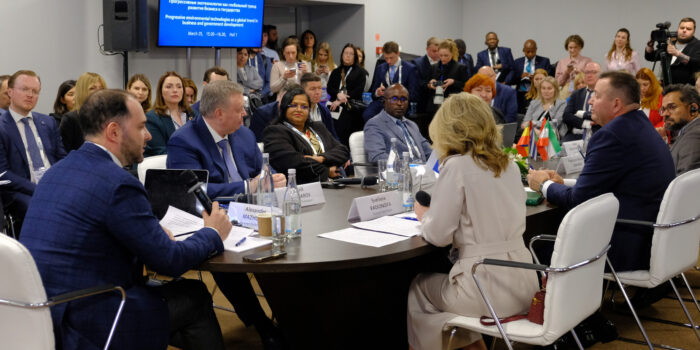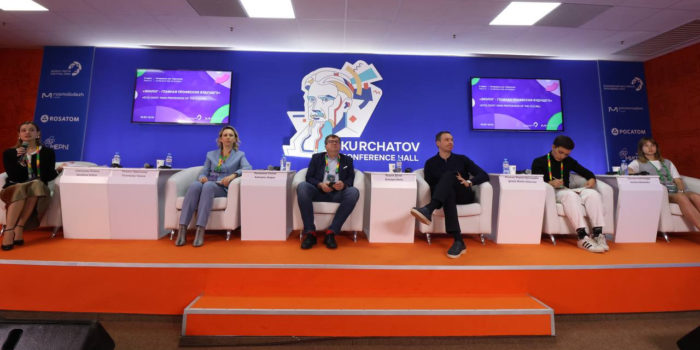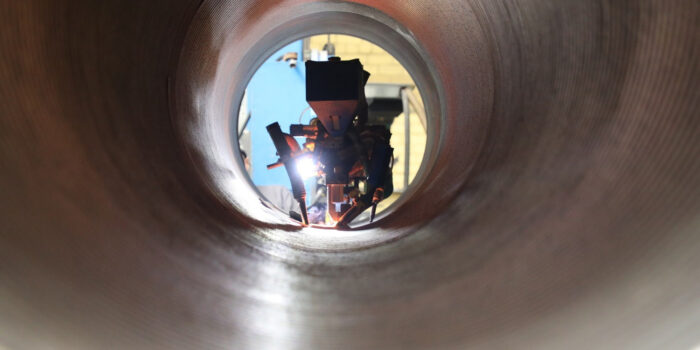Establishment of infrastructure for class I-II waste management
The Rosatom State Corporation is one of the key participants in the national project “Ecology” and works in two directions at once – it is creating infrastructure for class I-II waste management and elimination of objects of accumulated environmental damage.
In 2018, the federal project “Infrastructure for class I-II waste management” was approved, and in 2019 Rosatom began to implement it. This project fully meets the development strategy of the State Corporation and is consistent with the UN sustainable development goals.
“Federal Environmental Operator,” Federal State Unitary Enterprise (FEO FSUE) (an entity of Rosatom State Corporation), has been determined as the federal operator for class I-II waste management in the Russian Federation. The goal is to create a comprehensive, safe system for managing the entire waste chain from generation to recycling into secondary products.
From March 1, 2022, waste generators that do not have their own facilities for class I-II waste management are required to transfer such waste to the federal operator under an agreement.
In turn, the federal operator, either independently or with the involvement of private operators, ensures their transportation, processing, neutralization, disposal and safe placement. Thus, existing enterprises that today process or transport waste continue to operate.
The federal waste classification catalog contains more than 480 types of class I-II waste.
Ist class:
- mercury-containing waste (lamps, instruments, sludge, slag);
- waste electrical equipment (transformer oils).
IInd class:
- lead-containing waste (lead-acid batteries, electrical cable waste);
- waste of chemical power sources (batteries, accumulators);
- organic combustible waste (waste from chemical and petrochemical production), etc.
At the same time, FEO FSUE is creating an infrastructure for class I-II waste management, taking into account international experience, the emergence of new technologies and developments in the field of industrial waste recycling.
This is a network of ecotechparks that meet the principles of the best available technologies and the best environmental practices.
Technological processes at production complexes represent a closed production cycle, which is based on the principles of safety, environmental friendliness, efficiency and resource conservation. New production facilities are equipped with advanced technologies in the field of waste neutralization and disposal and multi-stage safety systems.
The infrastructure being created will ensure the processing of industrial waste and the inclusion of its useful components in economic circulation.
Creation of an information system for accounting and control of class I-II waste management
As part of the federal project, FEO FSUE has developed a federal state information system for accounting and control over the class I-II waste management (FSIS OPWC). In December 2021, the system was put into operation.
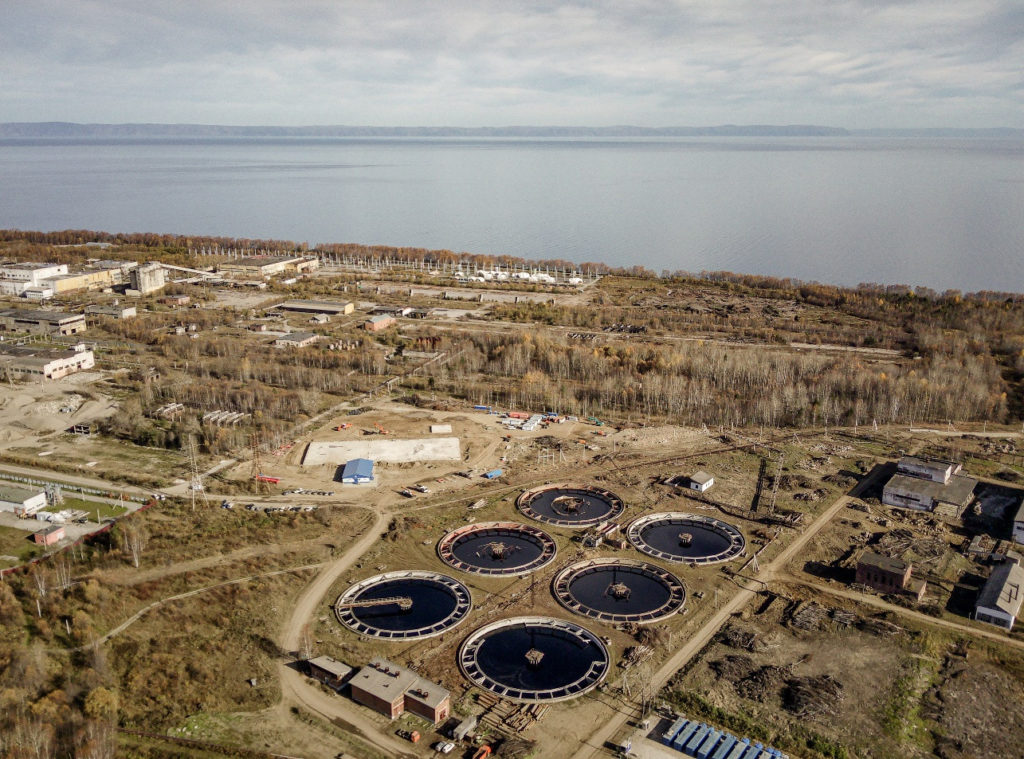
The digital platform of FSIS OPWC was designed, first of all, to ensure work with class I-II waste in a “single window” format. The system provided a transparent and understandable system of relationships for all market participants, made it possible to submit applications for waste removal in real time, as well as quickly exchange electronic documents.
FSIS OPWC helps:
- ensure proper accounting and control of class I-II waste management throughout the entire life cycle;
- generate information on the actual amount of generated class I-II waste, their processing, accumulation and disposal;
- generate information about the location of class I-II waste processing facilities and their technical characteristics;
- organize activities for class I-II waste management at existing facilities in an optimal and environmentally friendly manner;
- exchange data with Rosprirodnadzor to prevent and reduce the number of offenses in the field of environmental protection;
- maintain in electronic form the federal class I-II waste management scheme of that is current at any time;
- ensure the development of the waste recycling market and the transition to a circular economy.
From March 1, 2022, all waste generators must register with FSIS OPWC, regardless of whether they have in the ownership or otherwise legally own hazardous waste management facilities or not. Registration is also required for all companies that transport class I-II waste, and operators handling these wastes.
By the end of 2023, more than 90 thousand users from all over Russia had registered in the system. This is more than 50 thousand legal entities, of which about 47 thousand are waste generators. The rest are waste transporters and waste processing operators. Thus, about 83% of the class I-II waste management market are already operating in the new system.
24% of the licensed operators for waste neutralization and disposal work in the system. About 70% of them are engaged in waste neutralization and a little more than 30% in disposal. The commissioning of ecotechparks for the processing of hazardous waste will make it possible to change this proportion and ensure the recycling of about 65% of waste in accordance with the requirements of the circular economy.
Elimination of accumulated environmental damage (industrial heritage)
Thanks to Rosatom and the Ecology national project, as a result of elimination of accumulated environmental damage, 1700 hectares of land will be returned to economic turnover. In accordance with the decisions of the Government of the Russian Federation, Rosatom is working to bring the most dangerous objects of accumulated damage to a safe state in the Irkutsk, Chelyabinsk and Leningrad regions. The goal is to reduce environmental risks and improve the quality of life of millions of people.
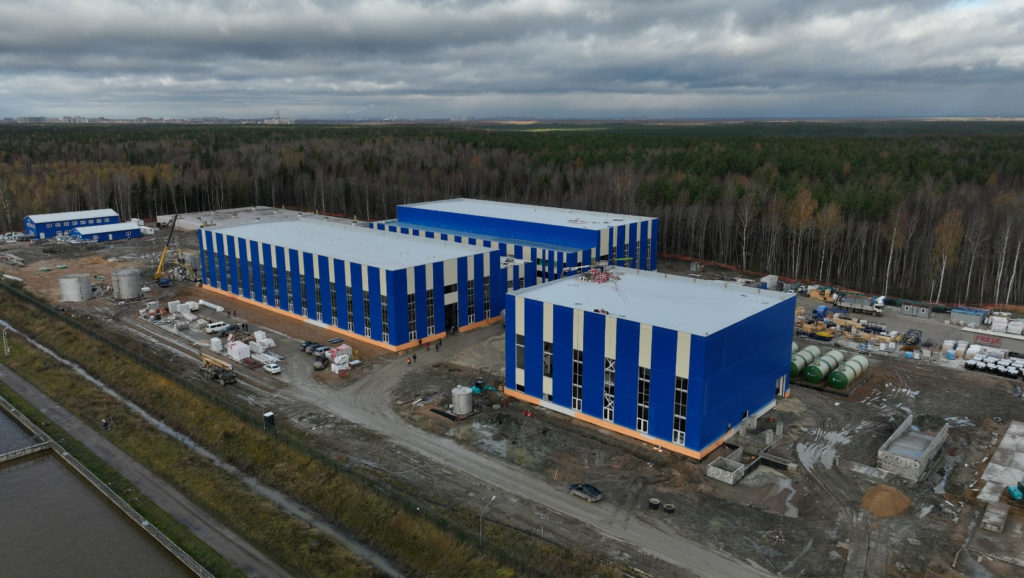
Successful experience in eliminating objects of accumulated environmental damage allows us to project the applied solutions onto objects from other countries. Taking into account the unified approach to the design of chemical production facilities in Soviet times, it is possible to use approaches tested in Russia to bring former chemical production facilities to a safe state in the territories of the CIS countries. Currently, the possibility of using Rosatom’s competencies to eliminate accumulated environmental damage on the territory of Nairit CJSC in Yerevan, Republic of Armenia, is being discussed.
As part of the implementation of the CIS interstate target program “Reclamation of Territories of States Affected by Uranium Mining Production,” FEO FSUE is implementing a number of projects for the reclamation of tailings dumps in the Kyrgyz Republic.
Last year, the Republic of Armenia submitted a request to develop a concept for the reclamation of the territory of the former Nairit chemical production site. Specialists from FEO FSUE carried out an inventory of waste accumulated on the territory of the former chemical plant and proposed various options for the development of the site after it has been brought into a safe condition. In case of further attention of the Armenian side and with appropriate instructions from the Russian Government, the work will continue.
Also, in the near future, FEO will receive the status of the basic organization of the CIS member states on issues of cooperation in the field of class I-II waste management. The draft designation regulations were approved at the XXIV meeting of the Commission of the CIS Member States on the Use of Atomic Energy for Peaceful Purposes, which took place recently in the Republic of Belarus.
As the base organization of the countries of the Commonwealth, FEO FSUE will carry out work in several areas: creation of information and statistical databases, directories of the best available technologies, conducting joint scientific research, development of monitoring systems, introducing safety standards, digitalization of production processes, design and construction of modern industrial infrastructure facilities, professional training and independent assessment of personnel.


